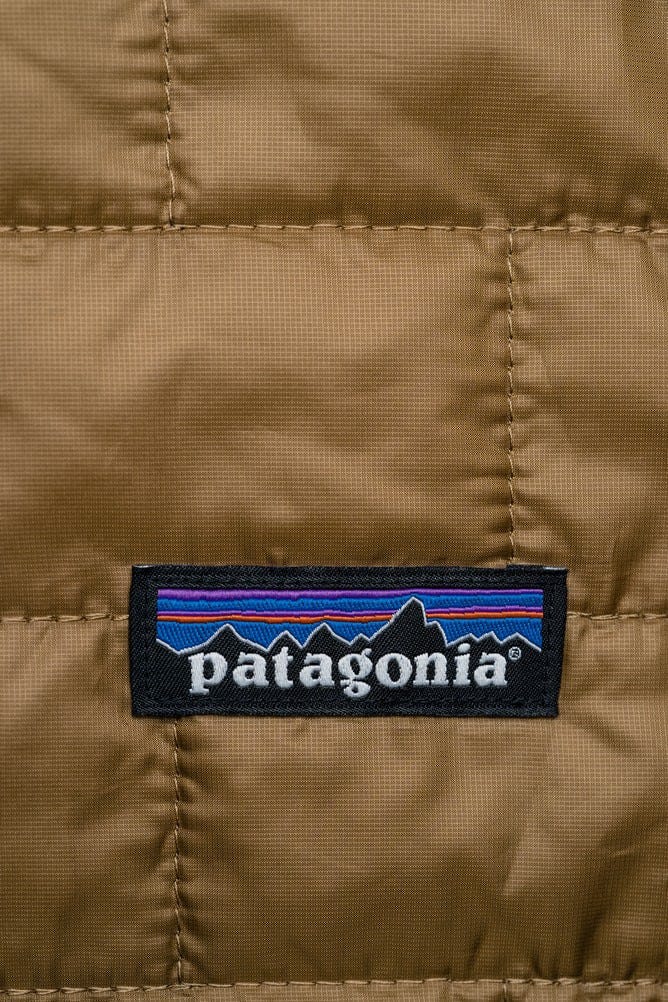Pata-gone-ia
Another day, another turn of the screw.Early this year, fishing brand Patagonia was criticised for their support of a group called Moorland Monitors. Patagonia supports the group via their Action Works programme, which attempts to connect individuals with groups that support Patagonia’s mission of protecting wild places with social media amplification. Patagonia also gave Moorland Monitors a financial grant in 2018.
But why is the small matter of minor corporate sponsorship of an obscure activist group remotely of interest? Well, ask a boring question and you get a boring answer. Moorland Monitors are indicative of where Patagonia’s money — and interest — lie in the future.
Of course, it’s important to be even handed about this — it’s vital to avoid being needlessly controversial, although that is basically my whole personality. Moorland Monitors are a group that ‘encourages lawful public monitoring of shooting estates to document crime, cruelty and malpractice’. Although I have searched high and low to find a statement from them that says they are expressly pro-shooting ban, I can’t in all good conciseness say I found one. But their rhetoric is exactly the same as groups that are expressly pro-shooting ban. It would require wall-to-wall witlessness on the part of Patagonia to be ignorant of the fact that this is a group formed by people who would, ideally, see field sports curbed entirely. Moorland Monitors describes itself as a collection of ‘volunteers getting out to monitor grouse shooting estates for crime and cruelty’, which is something all field fields enthusiasts should be innocent of. But to be truly even handed, they immediately follow that statement with ‘The industry of driven grouse shooting relies on the destruction of wildlife and habitat’, which shows that Moorland Monitors considers there to be no innocence, only degrees of guilt.
I’m not going to go too hard on Patagonia, a company that cares so much for ‘cruelty’ that it hasn’t opened up a store in Chin- and well, wouldn’t you know it? I bet you saw this one coming. I suppose it’s always important to balance respect for human rights with Chinese money, but let’s not add that to the charge sheet.
But rather than the responsibility solely of Patagonia, this is in fact a reflection of a trend seen more and more — once outdoor brands get to a certain size and begin to gain mass-market appeal, they suddenly consider their roots in fieldsports as rather embarrassing, and engage in a whitewashing PR drive to give them a new identity. The new identity is predictably, totally and uniformly uniform. They invariably morph into corporo-hive mind approved eco-conscious lifestyle labels, driven by a ‘brand mission’ and with sufficient warm and wooly PR to satisfy the incurious passivity of the flock as to what these actually entail. Which is usually achieving sufficient warm and wooly PR to maximise revenue. Both the sales and focus of the brand shift, from outdoorsmen with an eye for quality to those who buy it as a lifestyle brand. The quality of their product usually diminishes as a consequence. You need far lower quality stitching for riding the Tube than you do climbing fences.
But there is positive news from all of this. Like a person carrying wood into a burning building, as brands engage in virtue signalling, it encourages the practice amongst everyone. These fires are more easily lit than controlled. As brands signal their new values with greater and greater force, people who don’t hold the same values inevitably counter signal, often by complaining to the company or by buying from a different company entirely. Usually, faced with criticism, brands double down on their vocal commitment to millennial avocado toast latte culture. The first reason is that, frankly, there’s more money in GQ than there is Shooting Times. The second reason is that the communications firms that generate their warm and wooly PR, being largely based in urban centres, are disconnected from field sports, They are insulated from pro-fieldsports arguments, unfamiliar with its culture and without any affinity for it. When they consider promoting the brand using field sports, they think only of the nasty replies on Twitter, and act accordingly to protect a brand’s reputation, rather than integrity. Patagonia have become so isolated from their core base, it seems, that they’ve appointed a former Director of Communications at the RSPB, who was public lauded for her ‘activist’ status on her appointment.
Even if heat does come from the pro-shooting side (say, from actions such as supporting Moorland Monitors) the opposition is so assured of their moral superiority, of being aligned with universal ‘good’, that they are far more vociferous. The higher cost of being seen to support fieldsports, in terms of both reputation and sheer workload from dealing with the anti-shooting lobby, means that there is very little to incentivise firms that are not expressly pro-fieldsports to defend the sport. Patagonia, for instance, has not backed down from its support of Moorland Monitors.
But that is not to say that this doubling down is not without cost.This is the phenomenon of ‘go woke, go broke.’ As consumers leave a brand, the functioning free market — as free markets are wont to do — provides a solution. Consumers find companies that are in line with their values, entrepreneurs create companies that actively reject the messaging that drove new customers to them. So don’t be despondent that Patagonia is supporting a group like Moorland Monitors — after all, it’s better to know who your true friends are, isn’t it?


